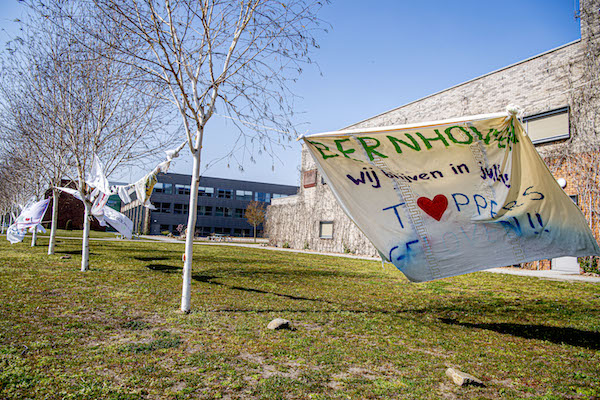RIVM tempers intensive care expectations as corona cases continue to rise


While the effect of measures introduced in the Netherlands to slow the spread of coronavirus are being felt, the impact is not as strong as the public health institute RIVM had hoped.
‘The most positive scenarios of last week have not been realised,’ Jacco Wallinga, who models the spread of the disease at the RIVM, told broadcaster NOS.
‘The most likely scenario now is that we will have 2,500 patients in intensive care mid April. That is a major shift when compared with last week,’ Wallinga said.
The RIVM had hoped that 1,000 intensive care beds would be filled with corona patients by April 1, but that total was almost reached on Sunday.
The reason is partly because patients are spending an average of 23 days in intensive care, not 10 as was assumed earlier. This has lead to beds being occupied for longer. In addition, the number of admissions to IC units has risen more quickly than estimated.
Coloured gridlines represent exponential growth rates. Red = 41.5% (doubles in 2 days); Blue = 26.0% (3 days); Orange = 18.9% (4 days); Green = 14.9% (5 days); Purple = 12.6% (6 days); Yellow = 10.4% (7 days). All figures sourced from @RIVM. pic.twitter.com/tWvMURMAb5
— Gordon Darroch (@GordonDarroch) March 29, 2020
‘The only thing we can do now is pump up capacity,’ Wallinga said. ‘The patients who will be in intensive care in two weeks have already been infected. New measures won’t have any effect on them.’
The government is due to decide on Tuesday if the current ‘intelligent lockdown’ in the Netherlands should continue.
There are currently some 1,100 beds allocated to corona patients in Dutch intensive care wards, with plans to boost that to 1,500.
Flattening the curve
Nevertheless, there are positive signs and the growth in cases is flattening, particularly when hospital admissions are looked at. And in Noord-Brabant, where coronavirus first took hold, the rise in hospital admissions has slowed to around 10%.
‘That is where the measures were first introduced, so if you want to know what I base my optimism on, it is what is happening in Noord-Brabant,’ Wallinga said.
Labour leader Lodewijk Asscher described Wallinga’s concerns as ‘very worrying’ and has tabled several parliamentary questions on the issue. In particular, he wants to know why health experts were still assuming a 10 day intensive care stay when they spoke to MPs last week.
Thank you for donating to DutchNews.nl.
We could not provide the Dutch News service, and keep it free of charge, without the generous support of our readers. Your donations allow us to report on issues you tell us matter, and provide you with a summary of the most important Dutch news each day.
Make a donation